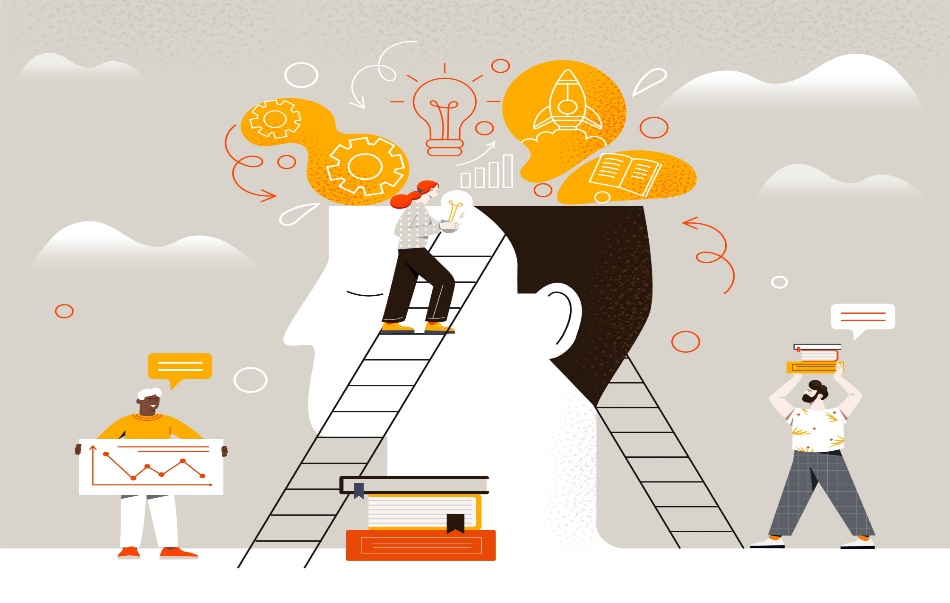In today’s rapidly evolving job market, skills that were once in high demand can become obsolete within a few years. With advances in technology, automation, and artificial intelligence shaping industries, professionals must continuously update their skills to remain competitive. Lifelong learning has become essential for career growth, enabling individuals to adapt, improve, and stay relevant as industry demands shift. This article explores why continuous learning is critical for professional success, highlighting key benefits, practical approaches, and strategies for embracing a lifelong learning mindset. Investing in self-improvement not only strengthens your current capabilities but also prepares you to take on future roles confidently.
1. Adapting to Industry Changes
One of the primary reasons lifelong learning is vital is to keep up with industry changes. Every sector, from technology and healthcare to finance and marketing, faces constant shifts in standards, tools, and practices. Employers seek professionals who understand the latest advancements and can integrate new methods into their work effectively. Lifelong learning provides the flexibility to adapt to these developments, ensuring you stay ahead of industry trends rather than being caught off guard by them.

By continually learning, you become agile in response to change, which is an asset in any field. For example, digital marketing professionals need to keep up with search engine algorithm updates, social media trends, and new advertising platforms. Keeping pace with these changes not only enhances job performance but also positions you as a proactive, forward-thinking employee.
2. Enhancing Job Security
In an environment where technology and processes are advancing rapidly, the risk of job redundancy is real. Positions that were essential a decade ago may no longer exist due to automation or restructuring. Lifelong learning mitigates this risk by equipping you with updated skills that match the evolving needs of employers. Developing expertise in emerging areas, such as data analytics or AI, ensures that you remain a valuable asset, even in challenging job markets.
Job security often depends on your ability to stay relevant within your organization or industry. By consistently updating your knowledge, you signal your commitment to growth and innovation. Employees who prioritize continuous learning are more likely to be considered for promotions, leadership roles, and challenging assignments. In this way, ongoing education doesn’t just keep you employable; it can also enhance your career trajectory.
3. Increasing Earning Potential
Professionals who pursue continuous education are often rewarded financially. Many employers recognize the value of updated skills and are willing to compensate individuals who bring new expertise to the table. As you acquire specialized knowledge and certifications, you become eligible for roles with higher earning potential.

In competitive fields like software engineering, project management, and finance, certifications in specific skills can significantly increase salary prospects. For example, a project manager with a certification in Agile methodologies can command a higher salary than one without. Whether through advanced degrees, industry certifications, or specialized courses, lifelong learning has a direct impact on your market value.
By demonstrating a commitment to learning, you show employers that you’re dedicated to adding value and improving efficiency—qualities they are often willing to reward financially. This ability to enhance your earning power is a compelling reason to make continuous learning a cornerstone of your professional development.
4. Building New Skills for Career Progression
As industries transform, so do the skill sets required to succeed in them. Lifelong learning offers a way to acquire new skills that might be necessary for moving into a leadership position or transitioning to a new field. Many professionals find that, over time, their career interests and goals evolve, and lifelong learning helps facilitate those shifts by broadening their expertise.
For instance, a professional who initially worked in software development may become interested in moving into a managerial role, which requires a different set of skills, such as communication, strategic thinking, and people management. Lifelong learning provides the opportunity to acquire these soft skills, making it easier to navigate career transitions.
Continually building new skills also contributes to job satisfaction, as learning something new can reignite motivation and engagement. By expanding your competencies, you’re opening up pathways to different roles and more responsibilities, keeping your career dynamic and rewarding.

5. Embracing Technology with Confidence
Today’s workplaces are becoming increasingly digital, and technology is now integral to almost every profession. From cloud computing and artificial intelligence to project management software, professionals are expected to have a basic understanding of digital tools relevant to their field. Lifelong learning provides a way to stay comfortable with these tools, ensuring you are always technologically competent and confident.
Courses and workshops focused on digital literacy, cybersecurity, or data analysis can prepare you to handle the latest tools and platforms effectively. This tech-savvy edge not only boosts productivity but also increases your appeal as an adaptable professional. With continuous learning, you become more resilient to changes and can quickly adapt to new technology without feeling overwhelmed.
As technological advancement shows no signs of slowing, the willingness to learn and apply new tools will be crucial for anyone aiming to stay relevant in their job.
6. Strengthening Problem-Solving Abilities
Lifelong learning does more than provide new knowledge—it sharpens your problem-solving abilities. Engaging in diverse learning experiences exposes you to different ways of thinking and new approaches to challenges. This adaptability makes you a more effective problem solver, equipped to handle complex situations and propose innovative solutions.

By engaging with various subjects and learning contexts, you develop the ability to analyze situations from multiple perspectives. This can be particularly valuable when facing industry-specific challenges or working on cross-functional teams. The adaptability and critical thinking skills fostered through continuous learning make you better prepared for unexpected challenges, strengthening your reputation as a capable and resourceful professional.
7. Creating Networking Opportunities
Lifelong learning also opens doors to valuable networking opportunities, connecting you with like-minded professionals, industry leaders, and mentors. Whether attending workshops, enrolling in online courses, or participating in industry conferences, you’re surrounded by people with similar goals who may become key contacts in your career.
Networking can lead to collaborative projects, new job prospects, or mentorship opportunities, helping you grow both professionally and personally. By building relationships within learning environments, you’re positioning yourself as an active participant in your field. Engaging with a network of lifelong learners fosters a sense of community, creating support systems that benefit your career long-term.

8. Improving Adaptability to Industry Trends
Industries often experience shifts due to market demands, regulatory changes, or global events. Lifelong learning keeps you prepared to pivot as necessary, equipping you with the tools and mindset needed to embrace these changes proactively. Adaptability is a trait that employers value highly, as it demonstrates resilience and foresight.
For example, the recent shift to remote work during the pandemic forced many employees to quickly adapt to virtual tools and new workflows. Those who had been regularly engaging in lifelong learning were able to adjust more seamlessly, as they had a mindset open to change. This adaptability can be crucial in times of industry disruption, helping you navigate transitions with minimal stress and maximum efficiency.
9. Developing a Growth Mindset
Continuous learning fosters a growth mindset, which is essential for personal and professional success. A growth mindset is the belief that abilities and intelligence can be developed through dedication and hard work. This outlook drives individuals to seek out new knowledge, embrace challenges, and view failures as learning opportunities.
Professionals with a growth mindset are more likely to take on challenges, welcome feedback, and remain resilient in the face of setbacks. This trait is beneficial for career development, as it keeps you motivated and proactive. When you prioritize lifelong learning, you cultivate a mindset focused on growth, which ultimately supports long-term career resilience and success.
Conclusion: Embrace Lifelong Learning to Secure Your Future
Lifelong learning is more than just a way to stay current in your field—it’s a strategic approach to securing career longevity, increasing job satisfaction, and enhancing personal growth. In an ever-evolving job market, the commitment to ongoing education allows you to adapt to industry changes, boost job security, and expand your career prospects.
By investing in continuous learning, you ensure that you’re equipped to meet the challenges and opportunities of tomorrow. Embrace this journey as a vital part of your professional life, staying curious and open to new ideas. Ultimately, lifelong learning will help you achieve relevance, resilience, and success in a dynamic job market. Don’t forget to share your thoughts or experiences in the comments below—we’d love to hear from you!

Leave a Reply